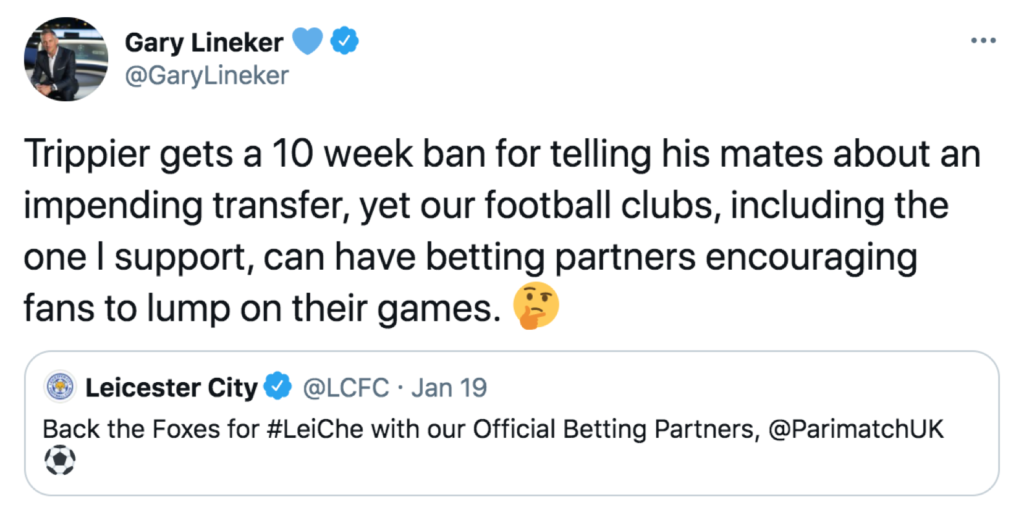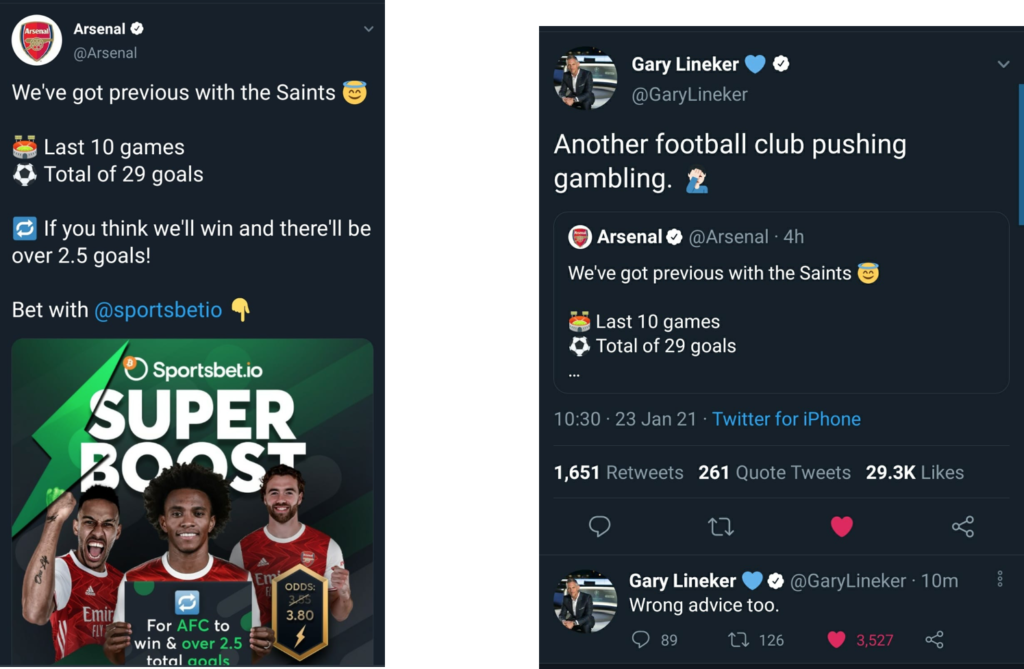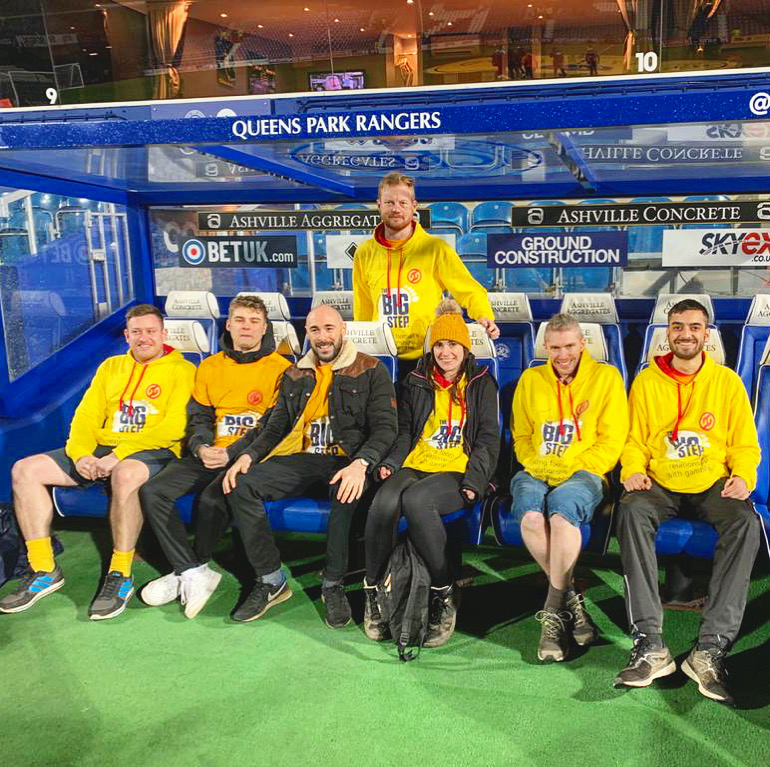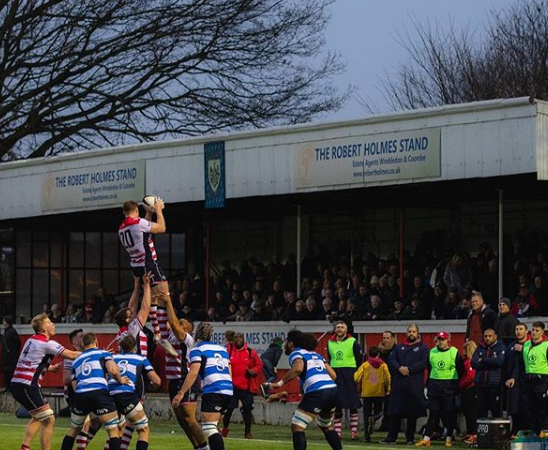Mental Health, Abuse, Delayed Cancer Diagnosis, Unemployment… Gambling Addiction? Is this another long lasting consequence of a year in lockdown?
I spoke to former addict, James Grimes, who now works for the charity, Gambling with Lives, about the problem of gambling addiction in lockdown.
As we edge nearer to a full twelve months since the UK was plunged into a state of lockdown, another killer escapes our notice. Lockdown was intended to save lives but significant side effects are occuring.
Throughout this period, increases in mental health issues, domestic abuse, substance addiction, delayed cancer diagnosis and interrupted treatment have all been discussed as after effects. The impacts can be hugely damaging and long lasting so we might not even see the results for several years.
But I am of course talking about another societal problem… gambling addiction. Moreover, the numerous betting sites and the complete lack of regulation that allows firms to run riot with people’s lives.
It really hit home with me when I saw Arsenal Football Club, the club I have supported all my life, encouraging fans to gamble on their own match with a betting sponsor.
How many millions of people see those posts across Arsenal’s various social media platforms? And what’s worse is it’s in a full-scale lockdown. There isn’t much else to do other than watch sport. The betting industry is preying on those locked inside their own homes at a time when we’re all supposed to be working together.
And to make matters worse, broadcasters are aiming to increase viewership (and betting opportunity) with around 3 games a week for each team being played at different times. It’s opened a can of worms.

Big names like Gary Lineker have thrown their hat in the ring and outed football clubs, like his beloved Leicester City. He displayed the hypocrisy in the laws and repercussions as Keiran Trippier was given a ban of 10 weeks after informing a friend of his move to Atletico Madrid.

Post like this are strewn across Instagram, Facebook and Twitter. How is a football club with millions of followers allowed to be associated with betting companies and then basically tell their fans to bet on certain results? (The above bet didn’t win by the way)
Well this is the opinion of former addict, James Grimes, who now works for Gambling with Lives, a charity working to end promotion of betting companies across sport, primarily in football.
Gambling affected ‘all areas of his life for 12 years’ according to James. ‘I was raised in an environment through football where gambling was so present and I think that’s what caused my addiction.’
It’s not just the 1.4 million addicts like James who are affected. The 2020 YouGov survey also estimates 3.6 million more people are indirectly affected. But how many people hear about this issue?
James explains ‘those figures are conveniently buried because why would the gambling industry want these figures out in the public?’
He’s right. Why would they? It’s a £14 billion industry. Out of the 44 Premier League and Championship football clubs, only eight aren’t associated in some way to a betting company.
James isn’t out for revenge. He doesn’t want to take the industry down. He actually isn’t against gambling. He simply believes the promotion, the advertising, the sponsorship deals, the social media presence of betting companies is so harmful to society a change is needed.
James believes the public are on his side but my reason for writing this is because in a full-scale lockdown, gambling is such an easy option to turn to. With many in financial difficulty, the advertising and just how easy it is to gamble, you can see why.
In a survey of people whose gambling increased during the UK’s initial lockdown, conducted by Yonder, the reasoning for gambling seem extraordinary. 39% expressed ‘having more spare time’ with roughly a third saying they were ‘bored’ and gambled more because ‘it was something to do in lockdown’.
The most staggering response was 22% saying they continued because they were feeling ‘low or unhappy’. This is a problem.
James says the industry has grown by a large amount since last March. But unlike the other issues exacerbated in lockdown, online gambling can be restricted easily. But that isn’t happening.
I thought I’d do some digging and look at the increase James mentioned. The numbers were shocking. The UK gambling regulator, The Gambling Commission, revealed the Gross Gambling Yield, which is the total profit made by gambling companies, of ‘Real Event’ Betting was £160m in March. There was an inevitable drop in the months of April and May but they recorded a total yield of £219m in June, the month football returned in the UK.
This figure dropped ever so slightly in July before falling to £164m in the football off-season but then increased to an even bigger October yield of £290m. That’s £130m more than the figure at the beginning of lockdown, when all football was suspended mid-March. The return of football seems to have driven a higher volume of bets placed compared to pre-lockdown levels and with it, associated losses.

And to those saying, well the figure for the total money made by gambling companies did drop during certain months for ‘Real Event’ betting. That is true. But the number of bets placed and gross yield increased in all other areas of gambling.
Gambling Companies’ Esports Gross Yield doubled from March to April and didn’t return to pre-lockdown levels till September. The same goes for Virtual Betting which increased by £3m in the same months and returns to March levels in June, when football returned. The online Poker stats show exactly the same patterns.
The total yield might not have been the same as the return from ‘Real Event’ betting, but when live sport was halted, it appears as though gamblers turned to other means to continue.
When you think about the lockdown, you can see why gambling would increase. People have more money to spend as they’re not going out as much and as the survey finding out why people increased their gambling showed, ‘it was something they could still do in lockdown’.
New customers as well as those on the edge of becoming an addict are in danger. We can expect many to revert their spending habits to their previous lifestyle but it’s about those that get hooked. Lockdown may have started a new generation of gambling addicts.

The number of bets placed from March to April increased in every other sector. Some sectors never returned to their March figures as others returned to pre-pandemic levels when football returned to our screens in June and July.
They also disclose the March 2019 figures. For ‘Real Event’ betting, 276m bets were placed in 2019, whereas in March 2020 the figure is 191m. That might seem better at first glance but the gross yield by the betting companies in 2019 was £85m whereas during the pandemic, the gross yield is more than £100m on all bar one occasion. More money is being lost from far fewer placed bets across months in 2020 compared to March 2019.
So how can we rectify the problem? James mentions it’s extremely hard to help addicts as ‘they’re not likely to think or say they have a problem’.
James believes more people will become aware of gambling addiction as they see the effects of it. And that is the case; according to the 2020 YouGov survey 5m people are affected. But the effects aren’t visible when people aren’t seeing each other. Meanwhile the industry is growing at an alarming rate.
James asserts if ‘I was still an addict during lockdown, I genuinely don’t know if I’d still be here’. And that’s exactly what his charity, Gambling with Lives, is here to prevent. But we can’t see the effects.
He ‘can’t imagine what it’s like for people struggling with gambling when they’ve lost pillars of their recovery or lost things they usually use for strength. The betting industry grew 39% from November to December, it’s a pandemic-proof industry’.
The companies only took the advertising off the TV at the beginning of lockdown ‘because there was no sport on. They wouldn’t take them off now because it’s pretty much the only thing people are doing. It’s fertile ground for both gambling promotion and gambling profits.’
Gambling with Lives is trying to ‘remove gambling presence from everyday life’. James says ‘the onus is all on the addict, not the betting companies. It’s in an addicts’ nature to not set those limits’. More needs to be done and James hopes the upcoming betting review rectifies this problem.
‘We hope that during the gambling act review, this issue is tackled. I don’t want it to just be about getting rid of the shirt sponsors, which I’m worried they might do as a big headline grabbing measure, it has to tackle all the other things as well.’
Gambling with Lives’ project called The Big Step, has raised the awareness amongst football fans of the biggest clubs in England after walking to all the major teams partnered with a betting firm.

They also have a petition on Change.Org called, ‘End Gambling Advertisement and Sponsorship in Football,’ which will be delivered to Downing Street later in the year. But James believes ‘football should be proactive, football doesn’t have to wait for legislation to change in two, three years’ time to put people over profit.’
James strongly believes he wouldn’t be an addict if he was born 20 years earlier. Betting has become so entrenched in our fan mindset with adverts and sponsors during matches, and it’s now creeped into social media.
Clubs with betting partners ‘is an even more dangerous form of marketing as it gives them access to millions of followers on social media, direct marketing to email addresses, and that’s worrying because that’s more accessible than the shirt sponsors and the advertising boards that we’ve become so used to’.
The next generation may very well find themselves in the exact same situation as James if nothing is done.
James is hopeful though ‘because the public are on board. The politicians can’t ignore the public, they need them for votes. The more people see gambling harm, which is inevitable, the more people are going to call for change’. He knows the public are onside and with five million affected, awareness will increase. But five million affected is already a huge problem and we can’t see the day-to-day affects as we aren’t seeing each other.
Gambling addictions, like so many other prevalent issues consumed by the pandemic, are not being seen. Football in the UK has been on since June of last year and we’re still going in and out of lockdown like a yo-yo. We won’t be able to see the results for years, and when I say results, like Coronavirus, mental health, domestic abuse… it means deaths, financial difficulties and family breakdowns.
The combination of the growth of social media, online gambling, lockdown and the naivety of those who can actually do something about this, is making sure gambling addiction is yet another silent killer of the Coronavirus pandemic.
*** You can listen to the full interview with James on RiversideRadio.com at 3pm (20th February) and it will be available on ‘The Riverside Radio Sport Show Podcast‘ wherever you get your podcasts ***


